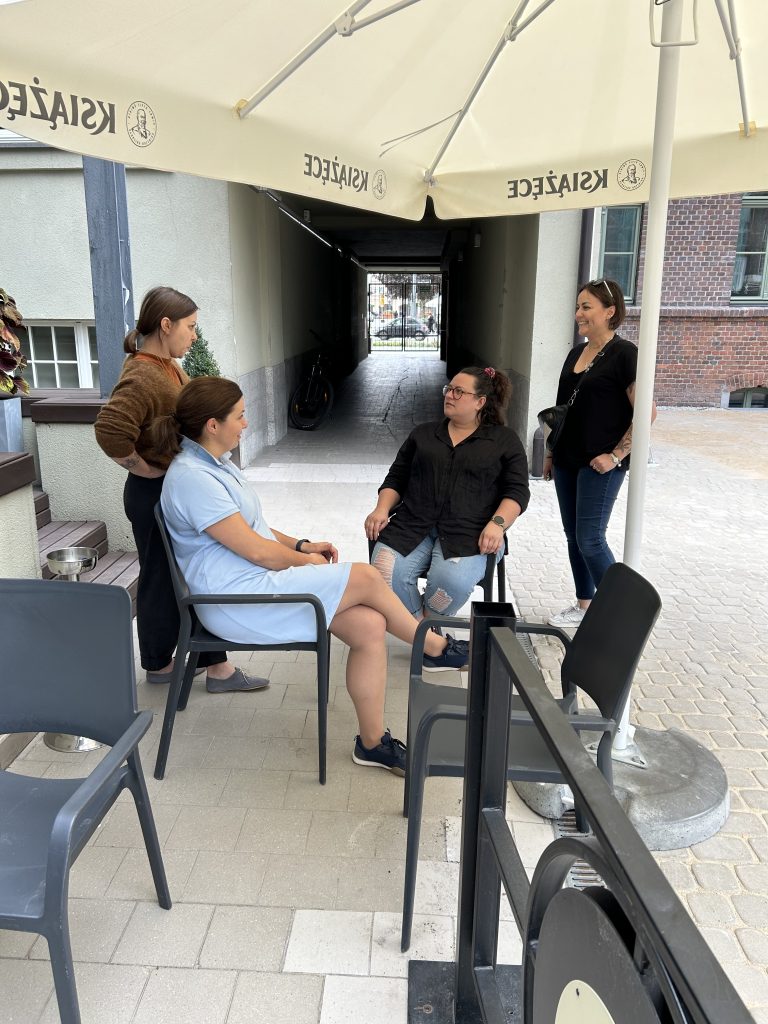“Sometimes as a therapist I want to scream: Why the Fuck would you think that was a good idea?”
This is a quote I saw somewhere on the internet. I’ve got it hanging on the wall of my office. A lot of clients reading it tell me they like the quote. They rather prefer an honest therapist than a politically correct one. This is exactly what one of the strengths of provocative therapy is. We don’t beat around the bush; we speak out what we think. The use of stereotypes is an important tool. At university I was taught to always treat every client as a unique individual with their own unique developmental history. By doing so you have to spend a lot of time to listen to and understand that history. Before you know it, you will have spent a couple of sessions understanding the client and the client will have spent his/her energy, time and money for you to understand. And then reaching the same conclusion we do with so many of our clients who have experienced a comparable ordeal in their live. Because let’s be honest: we all go through much of the same emotions, frustrations, fears, etcetera when confronted with the death of a loved one, when you are in the midst of a divorce, when you have been abused in childhood or when you feel you never have accomplished anything in life.
There’s another aspect to it as well. Most people are skilled in reading between the lines. This is not just a therapist’s privilege. Most people in therapy want help and understand that they have to open up. But still, we like to give a good impression to the therapist. So, although we are opening up, a lot of times we are not completely honest. “Ok, so I drink too much alcohol. But hey, I really can’t remember if I drink 5, 8 or 10 beer a day.” When asked by the therapist: “Roundabout 5!”. Most people will think that’s probably not just 5. As a therapist you know that it will probably be 10. In provocative therapy we are not surprised about this. We don’t condemn our clients for wanting to give a good impression. We just want to be honest and show our clients that they can be honest with us as well. Only when you are really honest about your problem, you can own it and take responsibility.
As said, before I started working provocatively, I was taught to treat clients as unique individuals. But it also entailed not speaking out all my thoughts even though my thoughts would be more honest and to the point than the therapeutical acceptable responses I was taught to give.
And this is still the mainstream! In the courses I organize to train students and colleagues to start working provocatively I notice how much effort it takes for most of them to be therapeutical honest. Old habits die hard. Therefore, I designed a new exercise: the ventriloquist! And this autumn my training group of systemic therapist in Poznan, Poland, was the first to try it out. What is the exercise? A couple is discussing their trouble. Behind each partner a therapist is standing. But this therapist is not just a therapist, he/she is a therapeutical ventriloquist. When partner A has said something, his ventriloquist will first ‘translate’ what he said in something more honest. The ventriloquist can use all the stereotypes he knows about relationships/ differences between the sexes/ tabus/ etcetera for this translation. When the therapeutical ventriloquist of partner A has finished, partner B can react to either her partner or his ventriloquist. After she has finished talking, her ventriloquist will translate her message in something more honest using all the stereotypes. This continues for 10 minutes.
What was the result: a lot of laughter, a lot of reactions like ‘O wow, you cannot say that!’ (but is was spot on), a feeling of freedom for the therapists and for the clients the feeling they finally spoke open about what was troubling them.
“Sometimes as a therapist I want to scream: Why the Fuck would you think that was a good idea?”. Well, as you might understand, I’m not thinking this anymore for over a decade. Working provocatively, using much more humor and adding some challenge to it has set me free of the therapeutical constraints that were not helpful, neither for me nor for my clients. With exercises like ‘the ventriloquist’ I invite the participants of my courses to use their therapeutical honesty.
Would you like to know more about the provocative therapy? My book is available in English, Spanish and Dutch. You can also listen to the podcast series that’s available in the same 3 languages. If you and your colleagues are interested to be trained in the provocative therapy, you can contact me to organize a course.






1 Reacties , plaats ook een reactie!
Hi, my name is Jasmin Kolbe, I am a Social Work student at the University of Applied Sciences Merseburg and about to write my bachelor thesis on the humor-provocative style and social work.
I am quite open concerning the specific research question and still searching for a thesis to work on/support to make an impact towards a broader research in the field of using humor in systhemic therapy/dealing with sick people. I have ended up on your website, being interested in your opinion on an interesting field or maybe a cooperation in terms of designing programmes to teach humour towards social workers.
It would be interesting to hear about your ideas soon, since I would like to start with my expose at least in the beginning of November.
Thank you in advance!
Kind regards,
Jasmin Kolbe